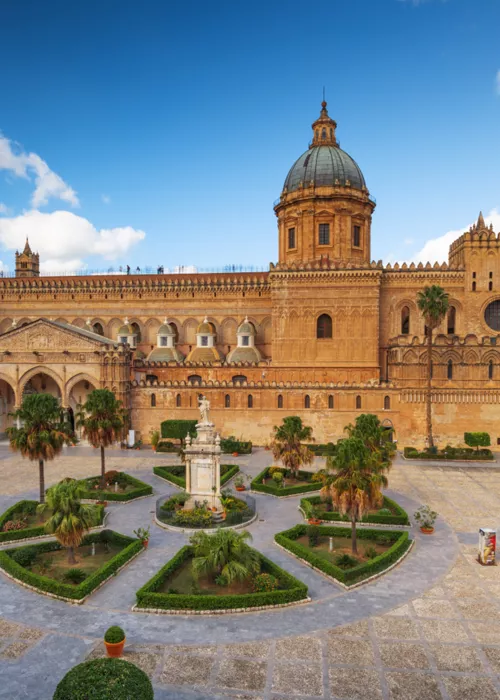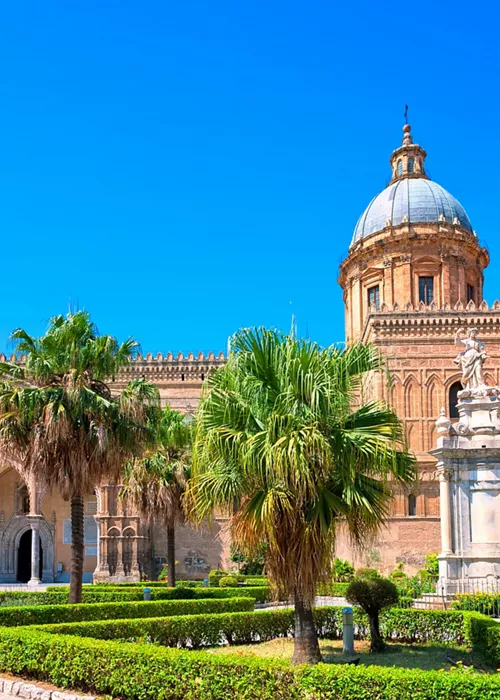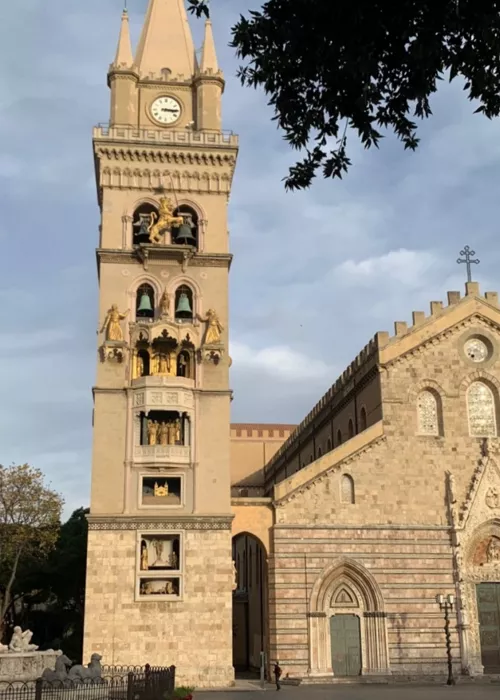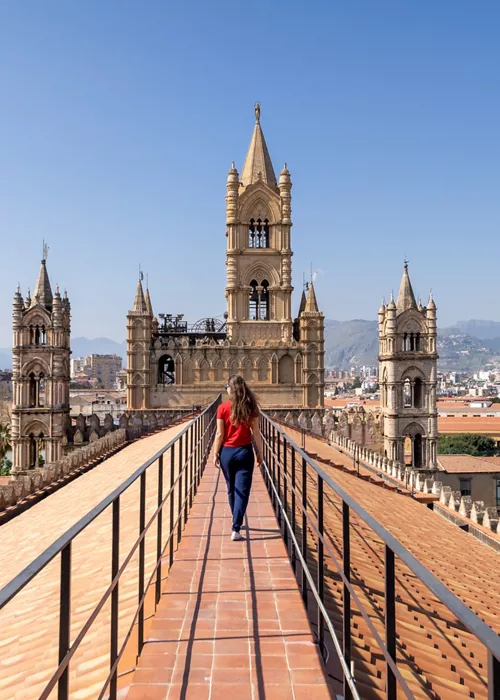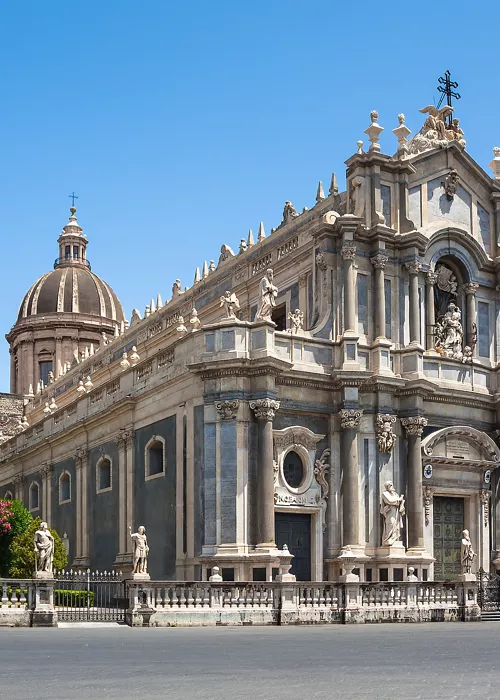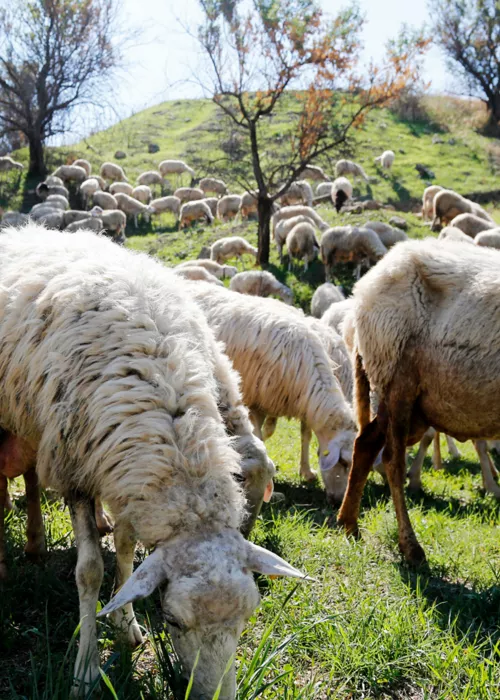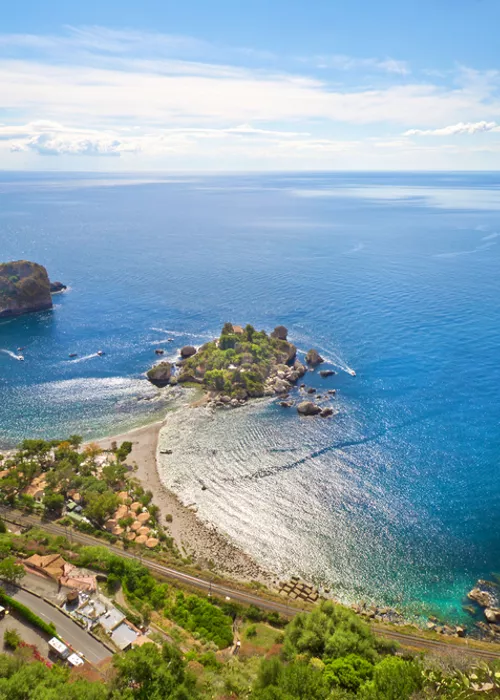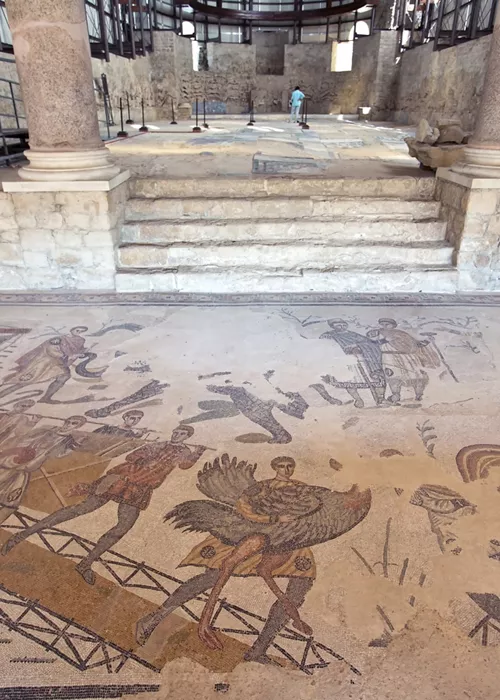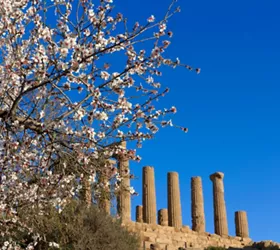Palermo has always been a crossroads of cultures and a fertile ground for all forms of art. Today, its most contemporary soul is expressed through street art, visible in both historic neighborhoods and the outskirts — across buildings, markets, construction sites, and public squares.
This urban itinerary guides visitors through the city's most significant murals: artworks that speak of justice, memory, integration, and rebirth. From Albergheria to Kalsa, from Ballarò to Borgo Vecchio, the city tells its story through sacred and secular faces, pop colors, poetic stencils, and community-based projects. Palermo becomes an open-air museum, where every wall is a story waiting to be heard.
Albergheria and Ballarò: saints, symbols, and the market

The tour begins in the Albergheria district, near the Ballarò market. Here, we find some of the city's most iconic murals: “Viva Santa Rosalia” by Igor Scalisi Palminteri, “FIDES” by Andrea Buglisi, and the portraits of Franco Franchi and Saint Benedict the Moor, the Black patron saint of Palermo.
La Cala and Piazza Marina: Falcone, Borsellino, and civic memory

In the Cala area, stop in front of the famous mural by Rosk & Loste depicting the faces of Falcone and Borsellino, symbols of the fight against the mafia.
Just a few steps away, in Piazza Marina, Tvboy portrays Falcone with a spray can in a work titled “It’s time to move forward.”
Kalsa: faces of the world and baroque dreams

Kalsa is a vibrant and multicultural neighborhood. Along Via dello Spasimo and Piazza Magione, you can admire murals by Rosk & Loste, Camilla Falsini, Basik, and Sten & Lex.
From “Bakitha” to the childlike figure of Frederick II, and the “Dream of Pope Sergius I,” this area reflects on cultural syncretism, childhood, and the power of dreams.
Molo Sant’Erasmo: art and migration

At the port, you’ll find the mural “Santo Erasmo” by Scalisi Palminteri, portraying the saint of sailors wearing a life jacket.
The artwork is a clear tribute to migrants, to the sea as a place of both hope and suffering, and to the redemptive power of hospitality.




